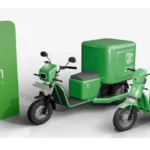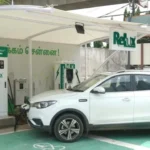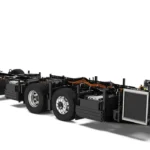Key Highlights:
- FAME 3 expects 30% additional benefits
- EV industry expects extension of 15% corporate tax for new manufacturers
- MOOWR-licensed OEMs anticipates relaxation on custom import duties
As the nation awaits the Union Budget 2024-25, the inaugural budget by Prime Minister Narendra Modi’s new NDA government, the auto industry is looking for ongoing support. Historically, the government has bolstered the industry with various incentive schemes such as Faster Adoption and Manufacturing of Electric Vehicles (FAME) and the Production-Linked Incentive (PLI) Scheme.
The funding for the Production-Linked Incentive (PLI) scheme has grown significantly to INR 3,500 crore. Even more exciting is the increase for advanced chemistry cells and battery storage, which has surged from INR 12 crore to INR 250 crore.
Many major brands have benefited from supportive EV policies and have set up or expanded manufacturing facilities. Others are planning to start operations here too. The industry’s value grew by 19% in FY24 compared to the previous year, reaching INR 10.2 lakh crore.
The scheme supported the INR 500 crore promotion of electric mobility through EMPS and subsidies, offering incentives of up to INR 10,000 for electric two-wheelers and up to INR 50,000 for electric three-wheelers. This program was part of Finance Minister Nirmala Sitharaman’s INR 2,671 crore “FAME 2” Policy.
The EV industry hopes for further extensions and additional benefits by 30% under the “FAME 3” policy in the upcoming 2024-25 budget session. As the industry prepares for opportunities in India and global markets, it seeks more government support to increase global competitiveness and boost domestic demand, aiming to make India the top auto manufacturing hub in the world.
Tata Motors, the leading company in India’s growing electric vehicle (EV) market, anticipates that the upcoming Union Budget will keep policies steady to help the EV industry become self-sufficient.
Shailesh Chandra, Managing Director, Tata Motors Passenger Vehicles and Tata Motors Electric Mobility said, “As far as the budget expectation is concerned, the government has been crystal clear and supportive of accelerated penetration of electric mobility in the country. We have schemes such as GST and PLI, among others”.

In the long run, the government aims to significantly increase the share of electric vehicles, which supports our environmental goals. However, there are immediate issues to address to boost EV adoption. While EV production and sales have grown quickly thanks to supportive policies, a few more steps are needed to strengthen the EV ecosystem.
These include funding for charging infrastructure, battery swapping stations, and research in EV technology. To stay competitive, the industry is also seeking extended reduced import duties on lithium-ion cells, a key EV component. Encouraging domestic battery production can lower EV costs and reduce reliance on imports.
EV manufacturers with MOOWR license currently face a double burden. They have to pay GST on imported components and incorporated tax costs on items sourced from India. However, they do not qualify for refunds on embedded taxes and duties for their exports under the (RoDTEP) scheme.
The industry hopes this imbalance will be fixed so that MOOWR-licensed EV manufacturers can compete fairly, boost exports, and offer more affordable EVs to consumers. High GST and income tax collections provide a chance for tax relief for automakers and component manufacturers.
To encourage manufacturing, a 15% corporate tax rate for new manufacturing companies was introduced in 2019, with the deadline extended to 31 March 2024.The industry now seeks another extension of these tax benefits for at least one more year.
Elctrik Speaks:
The Indian electric vehicle (EV) industry is looking forward to certain incentives and relaxations in the Union Budget 2024-25, which will be announced tomorrow. Key expectations include continued support for the “FAME 3” program, funding for public charging infrastructure, incentives for localizing components, and a reduction in GST on EVs.
Mukesh Taneja, CEO and Co-Founder of GT FORCE, mentioned that “We expect the government to consider reducing GST rates on EV components and batteries from the current 18 percent to 5 percent”. This tax reduction could help counteract potential price hikes after subsidy programs end and keep EVs affordable for the public.
These expectations come as the industry faces declining sales figures compared to international markets and previous years. Reducing customs duties on imported EV components and boosting local research and development in battery technology, as seen in the last budget.
This could accelerate domestic manufacturing, create jobs, and attract multinational companies. This would speed up the shift to electric vehicles and make them more accessible to a broader consumer base, including those in tier 2 and 3 cities, moving India closer to sustainable transportation.






